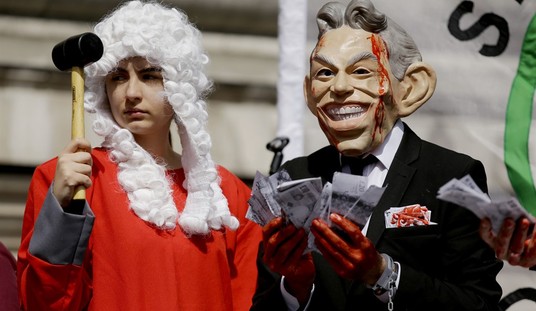So who’s ready for an American trial of Mexican drug cartel kingpin Joaquin “El Chapo” Guzman? You may be getting understandably excited about the prospect. After all, the gang lord was already moved from the Altiplano lockup further south in Mexico (and the scene of his now famous tunnel escape) to a cell in Ciudad Juarez, just over the border from us earlier this month. And the Mexican Government has approved his extradition. He’s certainly in high demand on this side of the Rio Grande. We’re looking at bringing him to Brooklyn to stand trial, but he’s also wanted for a chat with the authorities in Arizona, California, Texas, Illinois, Florida and New Hampshire. (Holy cow… is there anyplace that doesn’t want to put this guy on trial?)
So what cloud could possibly be on the horizon at this point? Well, have you ever tried to get anything done in a United States court when the plaintiff has a lot of lawyers and money? It’s nearly impossible to work through all of the procedural maneuvers at any pace faster than a snail crawling out of a bottle of Vicks NyQuil. So don’t be too surprised to learn that it’s not much different in Mexico. (CNN)
Lawyers for Guzman will appeal, attorney Andres Granados told CNN from Mexico.
Granados said that if the appeal is denied, the team isn’t ruling out going to the Mexican Supreme Court to ask for a stay on the extradition.
Guzman’s lead attorney told CNN’s Rafael Romo that the whole process could take another one to three years.“We were already expecting this scenario. Our next step is filing an appeal within the next 30 days (in federal court), as the law allows,” Jose Refugio Rodriguez said.
He said that ruling will be reviewed by a higher court.
And even if Guzman fails to stop the extradition process at each of those junctures, his attorneys may still be able to take their case to the Inter-American Commission on Human Rights. In case you’re not familiar with that august body, it’s a branch of the Organization of American States, which has the ability to act much like the United Nations when it comes to meddling in the affairs of governments across the western hemisphere. It’ really not difficult to imagine El Chapo’s legal team getting them to step in and question whether or not he can really “get a fair trial” in the United States as opposed to his homeland and open up a lengthy process of examination while they ensure that his rights aren’t being infringed upon.
From the beginning of this saga I haven’t been exactly clear on why we’d be in line to have Guzman extradited and tried here anyway. Sure, his vast criminal empire stretches deep into the United States and he’s a terrible person, but I don’t get the impression that he spent a lot of time north of the border in person. Aren’t his crimes against Mexicans even more heinous? Mind you, I’m not saying that there’s all that much hope for justice in Mexico. After all, it sounds like Guzman owns a fair share of the elected officials and judges in that country, on top of being considered something of a folk hero among the people. In terms of the court of public opinion, those who are not already fans of the drug lord are probably terrified of saying anything bad about him.
And finally, even if we get him out of Mexico and lock him up here for the rest of his life, what’s really going to change? In an organization as vast as his there must be a significant power structure ready to fill any vacuum in leadership. I assume some lieutenant has already taken over his “management duties” and kept the flow of cocaine and guns running back and forth across the border. I’m not saying we shouldn’t make every effort to do it, but I’m also not hopeful that a new era of lawfulness and good government is going to break out in Mexico once he’s gone.









Join the conversation as a VIP Member